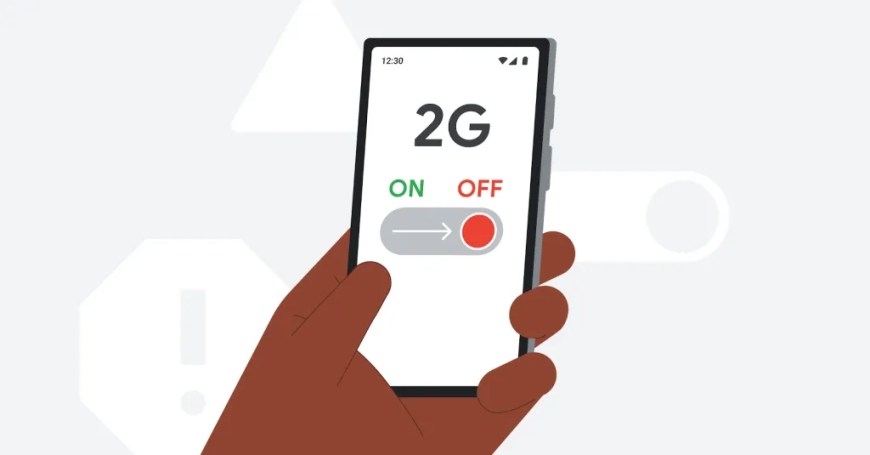Ghana's Digital Awakening: The Top 5 Cybersecurity Threats in 2025
A deep dive into Ghana's top 5 cybersecurity threats, from the rampant mobile money fraud endangering its FinTech boom to ransomware attacks targeting its core industries.

Ghana has firmly established itself as a digital frontrunner in West Africa. Driven by the government's ambitious "Digital Ghana Agenda" and the explosive growth of its FinTech sector, the nation has achieved one of the highest mobile money penetration rates in the world. This rapid digitization is a cornerstone of its economic future, promising greater financial inclusion and efficiency. However, this progress casts a long shadow. As millions of Ghanaians embrace digital platforms for banking, commerce, and communication, they also become targets in a new and complex battlefield. The very technologies fueling Ghana's growth are now the primary vectors for cyberattacks. This article outlines the top five cybersecurity threats that constitute Ghana's digital hit list.
5. Digital Identity Theft and Impersonation
The rollout of the national biometric ID, the Ghana Card, is central to the nation's digital strategy. While designed to streamline services and enhance security, the centralization of identity data also creates a high-value target for criminals. The threat lies in the fraudulent acquisition and use of this digital identity. Criminals can use stolen credentials to open bank accounts, take out loans, or perpetrate other crimes in a victim's name. As the Ghana Card becomes more deeply integrated into the fabric of daily life, the impact of digital identity theft will become increasingly severe, making its protection a foundational security challenge.
4. Attacks on Critical Infrastructure
Ghana's economy relies on key infrastructure in sectors like energy, shipping (via the Port of Tema), and telecommunications. As these sectors modernize, their operational technology (OT) systems are increasingly connected to the internet, making them vulnerable to cyberattacks. A successful attack could disrupt the power grid, cripple port logistics, or take down national communication networks. These are no longer theoretical risks. Such high-stakes attacks, whether from state-sponsored actors or sophisticated criminal syndicates, pose a direct threat to national security and economic stability.
3. Ransomware Targeting Businesses and Government
Ransomware remains a potent and growing threat to Ghanaian organizations. Cybercriminals are increasingly targeting small and medium-sized enterprises (SMEs), which form the backbone of the economy but often lack the resources for robust cybersecurity defenses. Government agencies are also prime targets. A successful ransomware attack can paralyze an organization, leading to massive data loss, operational downtime, and severe financial costs. The decision of whether to pay the ransom presents an impossible choice, and even if paid, there is no guarantee that data will be restored, making this a particularly devastating form of cyber extortion.
2. Social Media and E-Commerce Scams
With a highly active and youthful population on social media, platforms like Facebook, Instagram, and WhatsApp have become fertile ground for a wide array of scams. These range from fraudulent online sellers and fake job advertisements to elaborate romance and investment scams. Criminals exploit the inherent trust within social networks to deceive victims, often convincing them to part with money or sensitive personal information. The sheer volume and viral nature of these platforms make it difficult for law enforcement to keep pace, leaving millions of users exposed to financial loss and emotional distress daily.
1. Mobile Money and FinTech Fraud
The phenomenal success of mobile money in Ghana is also its greatest vulnerability. This ecosystem is the undisputed number one target for cybercriminals. The primary methods are a blend of social engineering and technical exploitation, including:
-
Smishing (SMS Phishing): Deceptive text messages pretending to be from banks or mobile money providers, tricking users into revealing their PINs or clicking malicious links.
-
Vishing (Voice Phishing): Fraudsters calling victims, posing as official agents to "help" with a fake account issue, with the real goal of coaxing out sensitive information.
-
SIM Swap Fraud: A sophisticated attack where criminals deceive a mobile operator into transferring a victim's phone number to a SIM card they control, giving them access to one-time passwords and full control over mobile money and banking apps.
These attacks directly target the savings and daily transaction funds of ordinary citizens and small businesses, making mobile money fraud the most widespread, immediate, and financially damaging cyber threat in Ghana today.
Conclusion: Securing the Digital Gold Coast
Ghana has taken commendable and proactive steps to address these challenges. The establishment of the Cyber Security Authority (CSA) provides a clear legal and institutional framework for tackling cybercrime and promoting awareness. However, the battle is far from over. The country faces a significant cybersecurity skills gap and needs to intensify public education to build a resilient "human firewall." Securing Ghana's digital future requires a sustained, collaborative effort between the government, the private sector, and every citizen who participates in the digital economy. Continuous vigilance and adaptation are the only ways to ensure that Ghana's digital awakening leads to prosperity, not peril.
What's Your Reaction?
 Like
0
Like
0
 Dislike
0
Dislike
0
 Love
0
Love
0
 Funny
0
Funny
0
 Angry
0
Angry
0
 Sad
0
Sad
0
 Wow
0
Wow
0








































